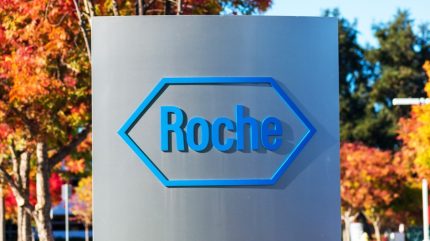
The US Food and Drug Administration (FDA) has granted a label expansion to Roche’s Alecensa (alectinib) as an adjuvant therapy for patients with anaplastic lymphoma kinase (ALK)-positive non-small cell lung cancer (NSCLC).
Alecensa was approved as a second-line treatment, for use after Pfizer’s Xalkori (crizotinib), for metastatic ALK-positive NSCLC by the US FDA in 2015. The therapy then received approval as a first-line therapy in the same indication in 2017.

Discover B2B Marketing That Performs
Combine business intelligence and editorial excellence to reach engaged professionals across 36 leading media platforms.
The kinase inhibitor generated SFr1.5bn ($1.6bn) in revenue in 2023, as per Roche’s financials. Alecensa sales are expected to increase over the next couple of years years and is forecasted to pull in $2.3bn in sales in 2030, as per GlobalData analysis.
GlobalData is the parent company of Pharmaceutical Technology.
The FDA approval was granted as part of the Project Orbis initiative. The project is a global collaboration between the MHRA, the Therapeutics Goods Administration in Australia, Health Canada, the Health Sciences Authority in Singapore, Swissmedic, Agência Nacional de Vigilância Sanitária in Brazil and Israel’s Ministry of Health, coordinated by the US FDA. The regulatory partnership assesses and approves oncology drugs to bring access to treatments faster.
Roche also plans to file for regulatory approval for Alecensa as adjuvant therapy for ALK-positive NSCLC with multiple global health authorities, including the European Medicines Agency (EMA).

US Tariffs are shifting - will you react or anticipate?
Don’t let policy changes catch you off guard. Stay proactive with real-time data and expert analysis.
By GlobalDataAlecensa’s approval was based on the positive data from the Phase III ALINA trial (NCT03456076). The therapy reduced disease recurrence or death by 76% in NSCLC patients with completely resected stage Ib-IIIa tumours, compared to platinum-based chemotherapy. At 24 months, the disease-free survival (DFS) rate was 93.8% in the treatment group, compared to the 63% DFS rate in the control group.
The Swiss company has invested in strengthening its cancer pipeline in recent times. In January, Roche signed a licencing deal with MediLink Therapeutics to develop an antibody-drug conjugate (ADC), YL211, for treating solid tumours.
Roche also licensed a precision solid tumour therapy camonsertib from Repare Therapeutics. The therapy is being evaluated in a Phase II TAPISTRY trial (NCT04589845) in patients with unresectable, locally advanced, or metastatic solid tumours.




